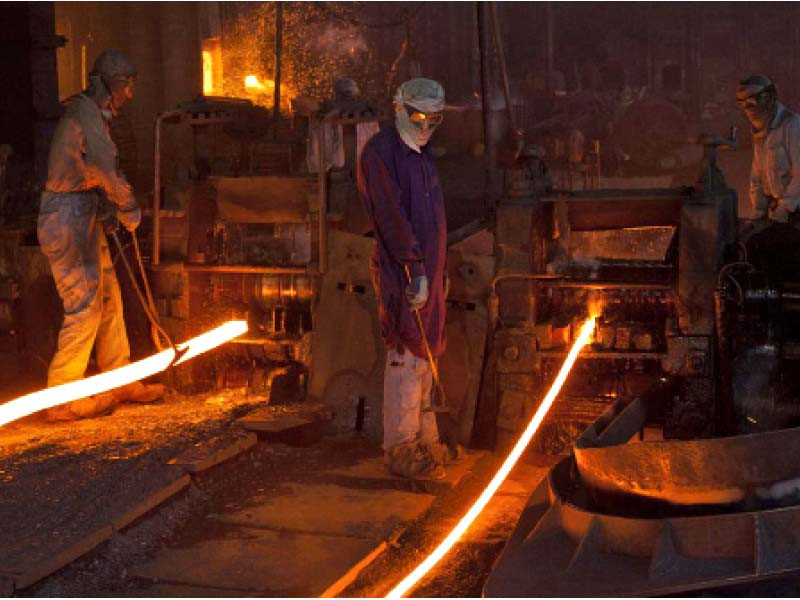
The government on Friday decided to sell state-owned enterprises to foreign countries through negotiated deals instead of conducting transparent bidding and also ruled out the possibility of handing over management control of power distribution companies to the private sector.
The decisions taken by the Cabinet Committee on Privatisation (CCOP) mark a departure from the privatisation path laid in an Act of parliament, which was aimed at ensuring maximum gains for the state and avoiding discretion in such sensitive matters.
Finance Minister Miftah Ismail chaired the first meeting of the CCOP that was attended by the key cabinet ministers.
An official statement issued by the finance ministry stated that the CCOP deliberated the modalities for the negotiated government-to-government (G2G) commercial transactions and decided that it was not the domain of the Privatisation Commission.
The CCOP directed the Ministry of Finance to formulate the proposal for structured transactions in coordination with the relevant ministries for the consideration of the cabinet, according to the finance ministry.
Miftah Ismail had directed the Privatisation Commission to initiate the process for a new legal framework for the negotiated government-to-government transactions.
It was decided that the finance ministry would prepare a new legal framework for the approval of the federal cabinet that would then decide and allow for either the strategic sale or giving the stake of government companies listed at the stock market to the foreign government under a negotiated deal.
The route has been adopted for fast-track sale of the government entities. But during the PTI regime, Saudi Arabia had offered to buy two multibillion-dollar LNG power plants under a government-to-government deal. The previous government turned down the offer, terming it against the Privatisation Ordinance of 2000.
Similarly, the PTI government had also refused to sell the Pakistan Steel Mills to China under the China-Pakistan Economic Corridor Framework agreement because of the same reason.
The CCOP meeting was informed that the government of the United Arab Emirates has showed interest in acquiring stakes in the state-owned enterprises under a negotiated deal.
The Privatisation Commission had proposed the CCOP that a competitive route should be adopted for the sale of the listed government entities to the institutional investors and the foreign governments as per the prevailing laws and regulations.
The CCOP also blocked an ongoing process to handover the management control of the power distribution companies to the private sector to bring efficiency.
“The CCoP agreed that this is a critical area of focus and directed Privatisation Commission to take one DISCO at a time to pursue a concessional arrangement focused on enhancing their financial viability and service quality. Additionally, transfer of DISCOs to provinces was also deliberated, it added.
The decision to offer the distribution companies to the provinces lay bare the government’s intention to keep these entities in the public sector. The provinces in past have already refused to take over the distribution companies.
The sources said that the CCOP wanted to handover the Faisalabad Electric Supply Company (FESCO) to the private sector but then dropped the idea due to opposition by some CCOP members.
The previous government had decided to transfer the control of these entities to the private sector.
The Secretary Privatisation Dr Iram A Khan was not available for comments.
Chairman Privatisation Commission (PC) presented the roadmap for current privatisation programme for reaffirmation by newly constituted CCoP. He presented government’s plans for revival of Pakistan Steel Mills (PSMC). The plan focuses on revival through significant foreign direct investment and technology transfer generating significant employment opportunities for qualified workers.
The Commission gave an updated status on the privatisation of the Pakistan Steel Mills. The CCOP discussed the modalities of the privatisation transaction, as many issues remain unresolved. The draft indenture of core lease deed has not yet been finalized for lease of core land of 1229 acres to the newly created subsidiary Steel Corp.
The concerned authorities have not been able to secure no objection certificate from NEPRA for power generation license from PSM to Steel Corp. The agreement for use of Jetty and Right of Way with the Port Qasim Authority remains pending.
Similarly, the Sui Southern Gas Company limited has not yet issued no objection certificate for withdrawal of litigation against the PSM to facilitate the transfer of core operating assets to the Steel Corp.
The official handout stated that the CCoP unanimously welcomed the prospect of PSMC revival, entailing commercial leasing of 1229 acres of land and jetty, and directed ministries of Industries & Production, Energy and Maritime to work with PC to remove all bottlenecks expeditiously.
CCoP was apprised of the ongoing effort to recapitalize NPPMCL, the owner of two RLNG power plants in Balloki and Haveli Bahadur Shah. Earlier, PC arranged bids of Rs102 billion from a local syndicate of banks for NPPMCL which will release the government funding and is currently working actively with relevant ministries to fulfill conditions precedent necessary for financial close.
The CCoP decided to form a sub-committee comprising of Minister of Power, Chairman PC, Secretaries of Power, Petroleum and Privatisation, Additional Secretary Finance Division and CEO NPPMCL for immediate resolution of bottlenecks.
The bids validity for the Rs110 billion debt restructuring of the power plants management company has expired last week due to non-completion of the condition-precedents like amendment in the Implementation Agreement and Gas Sale Agreement by the SSGCL and the rescheduling of the loans.
Published in The Express Tribune, June 25th, 2022.
Like Business on Facebook, follow @TribuneBiz on Twitter to stay informed and join in the conversation.


1732569774-0/Baymax-(2)1732569774-0-165x106.webp)















COMMENTS (7)
Comments are moderated and generally will be posted if they are on-topic and not abusive.
For more information, please see our Comments FAQ